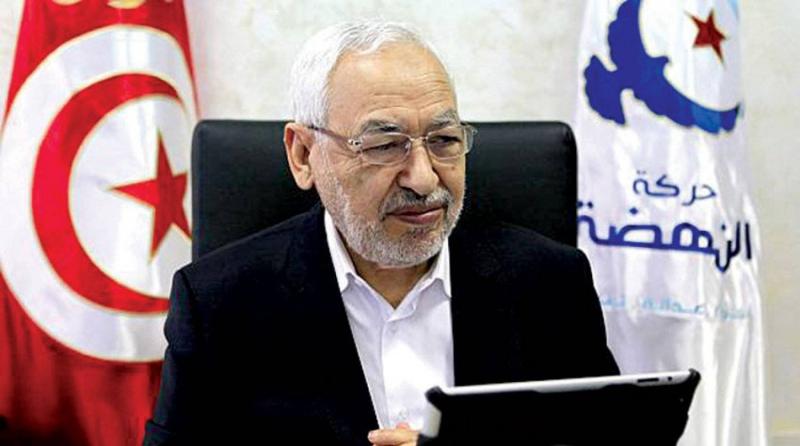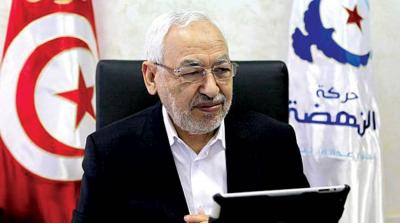The Islamic Nahda Movement is currently facing a difficult situation with the imprisonment of its most prominent leaders and the departures of several others, either to establish new parties or out of despair regarding change from within the movement, as well as others preferring safety and avoiding confrontation with the state, reminiscent of the experience of 1990-1991. It is paradoxical that a movement with over half a century of public and clandestine advocacy, organization, and political activity finds itself threatened with decline simply due to the disappearance of its leaders (starting from the Islamic Group as a collective advocacy body in the 1970s, through the declaration of the Islamic Trend Movement in June 1981, to the name change to the Nahda Movement in 1988).
The movement lacks a significant religious or jurisprudential presence in Tunisian society. It does not have any preacher with considerable popularity or recognized as a jurisprudential authority, even though most imams in mosques follow and support it; however, this loyalty is organizational and quantitative rather than ideological. From the outset, the movement did not plan for religious and advocacy influence; it was merely a step in acquiring a political body with an Islamic banner and an identity opposing the left that dominated the political and trade union scene. The movement was born obsessed with combating the left and limiting its influence, aiming to be a political movement at its core, sometimes cloaked in religious or advocacy pretenses, which made its background/identity characterized by turbulence.
The movement mixed various advocacy identities by taking shelter under the scholars of Zitouna, especially in the capital Tunis, to secure work within mosques. It also employed experiences and advocacy literature from the Muslim Brotherhood in Egypt and Syria. This duality has hindered the creation of an advocacy personality capable of influencing people and attracting them with a clear spiritual discourse, leaving the movement without a reference in the form of ideas or personalities.
Moreover, Nahda does not possess a cultural or intellectual presence that could compensate for its political absence, opting to engage with it only if forced to leave politics or as a maneuver or diversification of options, as a small fraction of its supporters currently calls for in order to avoid the fate of the Egyptian Brotherhood, whether through their clash with President Abdel Fattah el-Sisi domestically or the rising conflicts among those who escaped abroad and those who were previously settled, as occurred in London and Istanbul.
It may be said that the Nahda Movement is among the least productive Islamic movements in terms of intellectual output from its leaders. Except for the movement's president, Rached Ghannouchi, who has engaged in topics of democracy and "modernizing" Islam to convince the West of the idea of the emergence of Islamic parties akin to conservative Christian parties in Europe, there are no clear writings from Islamists. There may have been books or interpretative articles addressing partial issues in jurisprudence or Islamic economics, but they do not express a new identity that can be referred to in drawing conclusions about the movement’s thought, whether it is traditionally Salafist or a different entity.
Consequently, the presence and direct influence of the Nahda Movement are intertwined with its political existence, and when this presence disappears mainly for security and judicial reasons, the movement entirely loses its balance and confines itself to addressing internal issues that usually lead to disputes over organizational matters. Questions are now being raised about Nahda's political weight after the imprisonment of most of its leaders, and whether it will maintain its dominant role from 2011 until 2021. To what extent does it still retain its ability to exert political influence, and has it lost any role or still retains some margins of maneuverability?
The Nahda Party is a political entity with centralized decision-making, which makes the absence of leadership play a crucial role in its declining activity and presence in the scene. The absence of Ghannouchi, and to a lesser extent Ali Larayedh, confuses Nahda's political and partisan performance, especially after Abdel Fattah Mourou withdrew from the scene under the impact of insufficient support in the presidential elections.
Additionally, the absence of second-tier leaders, either being imprisoned like Abdelkarim Harouni and Al-Ajmi Al-Warimi or resigning and founding a new party like Abdelatif Mekki and Samir Dilou, or withdrawing quietly from other leaders who had had movement presence later like Lotfi Zitoun in 2011, further erodes one of Nahda's strengths, which is its political and media presence, conflict management, and its keenness to portray itself as a party that believes in democracy and power rotation, especially its ability to form alliances. This is a skill mastered by first-tier leaders who were able, before and after 2011, to build party and sometimes personal relationships with various components, including the deep state.
In practice, Nahda has regressed politically, even if it appoints a new face to speak on its behalf, it will be limited to registering its presence and implying that the movement still holds significance in the scene. It is currently experiencing a post-1990-1991 scenario, merely managing internal organizational issues. It is difficult to make a decision to hold a conference or elect new leadership in a consensual format, as it no longer has leaders capable of filling the void and maintaining a façade with charisma like that of the current Secretary-General Al-Warimi, with his ability to reassure and build bridges with others.
In the upcoming presidential elections on October 6, the Nahda does not have its own candidate, not out of modesty, but due to the absence of a candidate with the stature and weight of Abdel Fattah Mourou, whom it presented in the 2019 elections before abandoning him in favor of the idea of promoting a figure from outside the movement to avoid being accused of seizing power.
Nahda's choice was to support Nabil Shabiou's candidacy as a front for the Salvation Front; however, this did not materialize due to an internal reading within the front that Shabiou's chances are not abundant, not to mention criticism of the election conditions and nomination environment, as well as objections from within the movement towards Shabiou’s personality because of the conflict that arose between the two parties before the 2011 elections, which prompted Nahda to support Moncef Marzouki's presidential candidacy instead of the "historical ally."
It is difficult for Nahda to consider supporting Abdelatif Mekki, even implicitly. Nahda's public has not forgotten that he split from the movement and established a new party, taking part of its leadership reserve with him. Moreover, Mekki’s chances of reaching the second round are limited; thus, if Nahda considers any support, it will likely choose a figure who can provide guarantees, similar to the guarantees offered by the late President Beji Caid Essebsi.
The movement's current margin of maneuver in the electoral process is to seek out whom it can support in the presidential race by leveraging its electoral base, which solidifies more in crises and can be directed as a bloc. It may seek to support a candidate like Mondhir Znidi, whom it trusts as a serious competitor and who can provide the "guarantees" it is looking for; otherwise, it will leave its supporters the freedom to endorse any candidate they wish, especially with the plethora of candidates close to the movement and wooing its audience.
It is still early to discuss who Nahda may support in the elections from now, but certainly, it will seek to employ its electoral base to support whom it sees as a contender against Qais Saeed, whom it enthusiastically called to vote for in the second round of the 2019 elections against its "ally" Nabil Karoui, in a stance that reflects the movement's dual positions and the difficulty in predicting its decisions.




